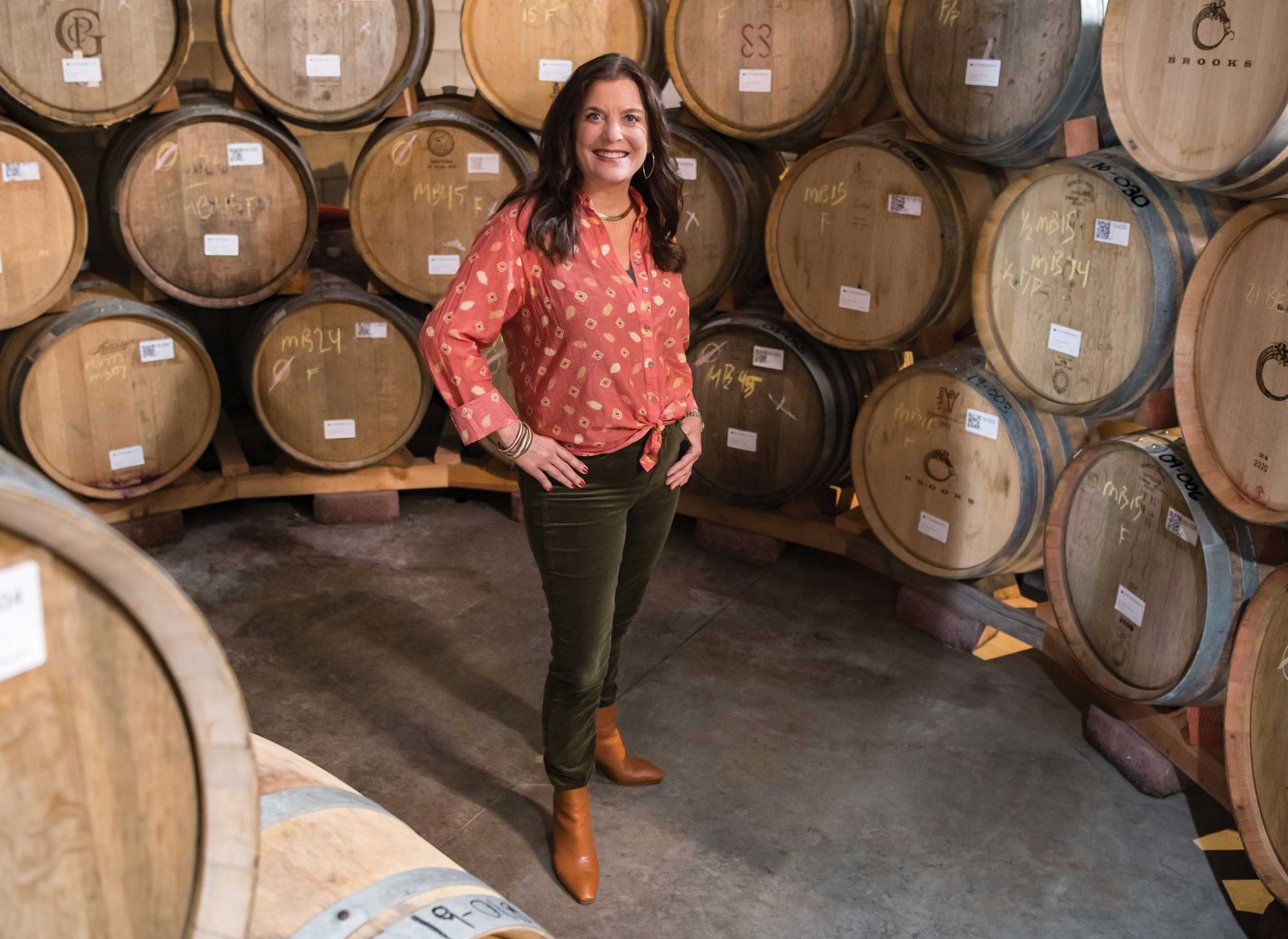
Balancing profit and purpose
n paper, Janie Brooks Heuck (BS Accountancy ’89) is an accountant who runs a winery. This may not sound like anything out of the ordinary — but in fact, its origins are worthy of an inspirational drama movie for the big screen, in which a lovely Willamette Valley, Oregon, fledgling winery is at risk of closure, in need of rescue after its eponymous founder’s untimely death. And in this story, Heuck is the heroine.
To be clear, she wasn’t looking for a gig as a managing director of a winery — or even as the finance director. Heuck had been happily ensconced in a corporate finance job in the health care industry. But in 2004, her brother Jimi Brooks passed away, leaving behind the winery that had been his life’s work.
“I was not at all interested in what he was doing,” Heuck recalls, “but the night he passed away, a group of winemakers from the area came to see me. They said they wanted to keep making Jimi’s wine, for free. They asked me to handle the business side.”
It was the spirit of community and collaboration that these winemakers showed, as much as the wine business itself, that attracted Heuck to the work. And if she didn’t carry on her brother’s legacy, who would? She assumed the role of winery director and has been at the helm ever since.
Seventeen years later, it’s clear that Heuck has done more than just carry on — she has expanded the winery and its legacy significantly. This is how Brooks Winery came to be named to the Sun Devil 100, which recognizes the top 100 fastest-growing companies led by ASU alumni. That’s a lot of business brainpower to measure up to, and Heuck and Brooks Winery have made it three years running.
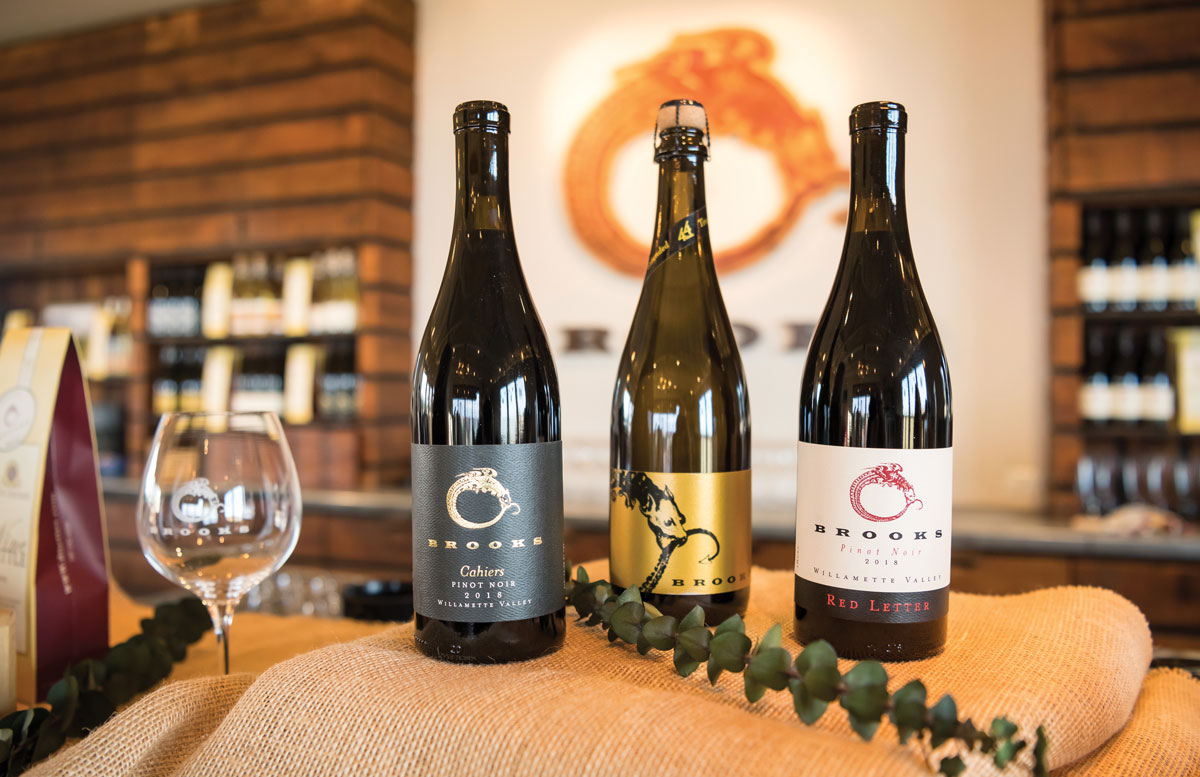
Certifiably making a difference
While the growth of Brooks Winery is impressive, it is hardly Heuck’s only consideration in how she manages the business. Brooks is the only winery in the world that is a certified B Corporation. Certified B Corporations are businesses that meet high standards of verified social and environmental performance, public transparency, and legal accountability to balance profit and purpose. B Corps are purpose-driven to create benefit for all stakeholders, not just shareholders.
Brooks Winery also is a member of 1% for the Planet, an international organization in which members donate at least 1% of annual sales or salaries to environmental causes. It’s also Demeter Biodynamic-certified, which requires a comprehensive organic farming method that involves creating and managing a closed system minimally dependent on imported materials, and instead meets its needs from the living dynamics of the farm itself. As Heuck puts it: “It’s organic-plus.”
(BS Accountancy ’89)
Compost fit for a king
The commitment and attention to detail involved in Demeter Biodynamic farming are evident in Brooks Winery’s composting, which seems to require more care than some grape growers might give to their entire harvest.
According to Heuck, this includes no fewer than nine different preparations derived from plants and animals to restore the soil and the grapevines. One preparation involves burying cow manure in cow horns for six full months until it all decomposes and becomes a nutrient-rich crumble that can be used to feed the plants. The vines are also sprayed with a formulation that spreads tiny pieces of shiny silica throughout the vineyards to reflect more sun on the plants, which increases photosynthesis and gives them greater vigor and growth. The grapevines are further enriched by the addition of chamomile tea to their compost mix.
If you imagine you can taste all that thoughtfulness and care and positive intention in the wine itself, Heuck is not going to disagree. “We work to make sure our wines are the truest possible expression of the grapes,” she says.
This means very little human intervention in the wine cellar once the fruit is picked. Sugar, acid, yeast, or water — which are often added to other wines to affect taste, texture, or consistency — are anathema at Brooks. “This business takes a lot of patience,” Heuck says, “especially because we don’t manipulate wines. We have to be patient through the ripening process to make sure we have sugar ripeness and flavor development.”
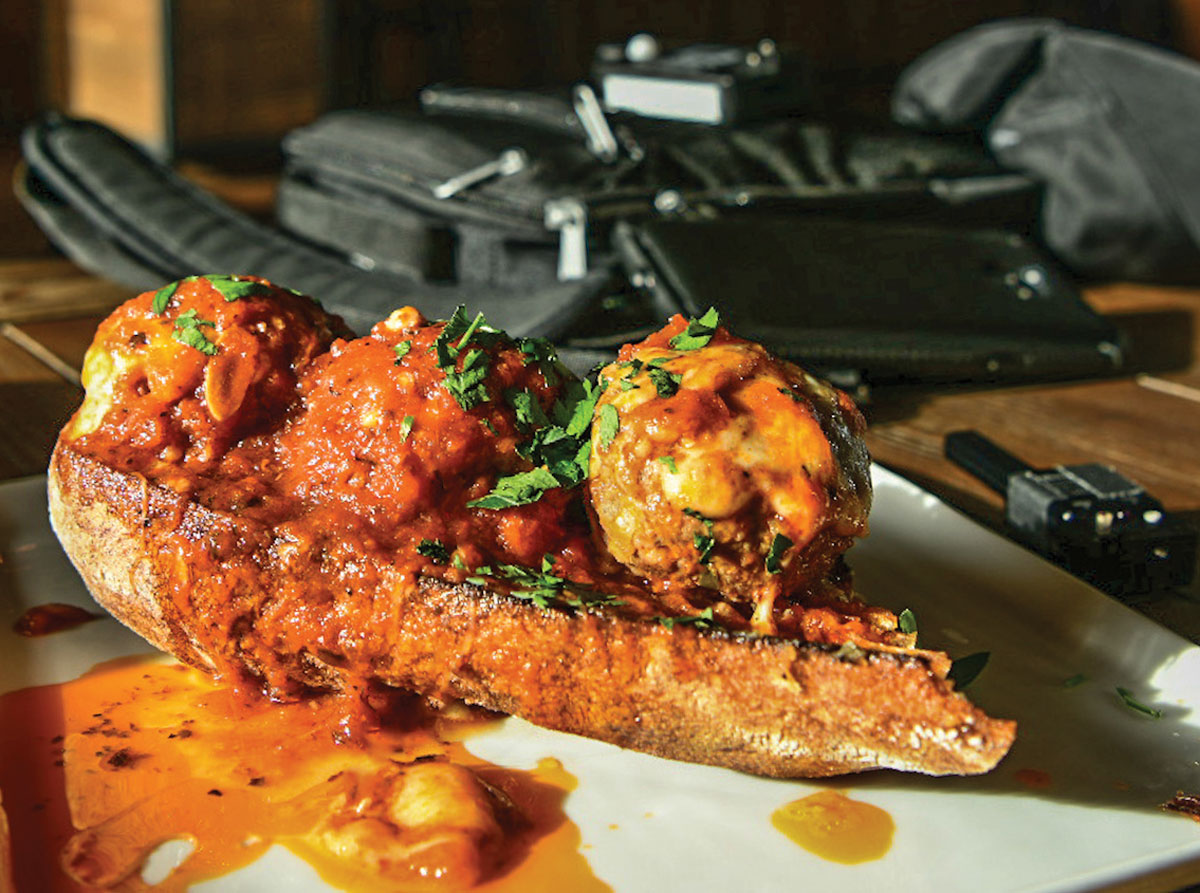
Innovation loves company
Heuck has two children, a 19-year-old son and a 23-year-old daughter, who she says are “not interested in the wine business at all.” She can understand: For all her passion for the wine business today, Heuck, who grew up in Oregon, knew she wanted to be an accountant when she completed high school. She had an aunt who lived in Phoenix, so she went to ASU, where she earned her accounting degree. It’s also where she met her husband, David Heuck (BS Accountancy ’82), who now works in finance.
In the busyness of life, Heuck had been “disconnected for a long time” from ASU. She reconnected when she was first recognized for the Sun Devil 100 a couple of years back. “I’m so proud to be an alum now, seeing how innovative ASU is,” she says. “It makes me proud.”
Heuck has been highly innovative herself, particularly when it comes to marketing. “When COVID-19 hit, we lost 70% of our business in a day,” she says. This came from being forced to shut down the winery’s tasting room. “We don’t run a traditional tasting room,” she says. “We have full tableside service, a full menu of food that changes monthly, over 60 different wines, and beer on tap.”
When that part of the business was shut down, Heuck knew she had to open other doors to reach customers. “We have created a lot of off-site opportunities through e-commerce and virtual events for customers,” she says. “We also created corporate virtual tastings, which they put on for their teams or clients. In a year and a half, we’ve done more than 100 online events.”
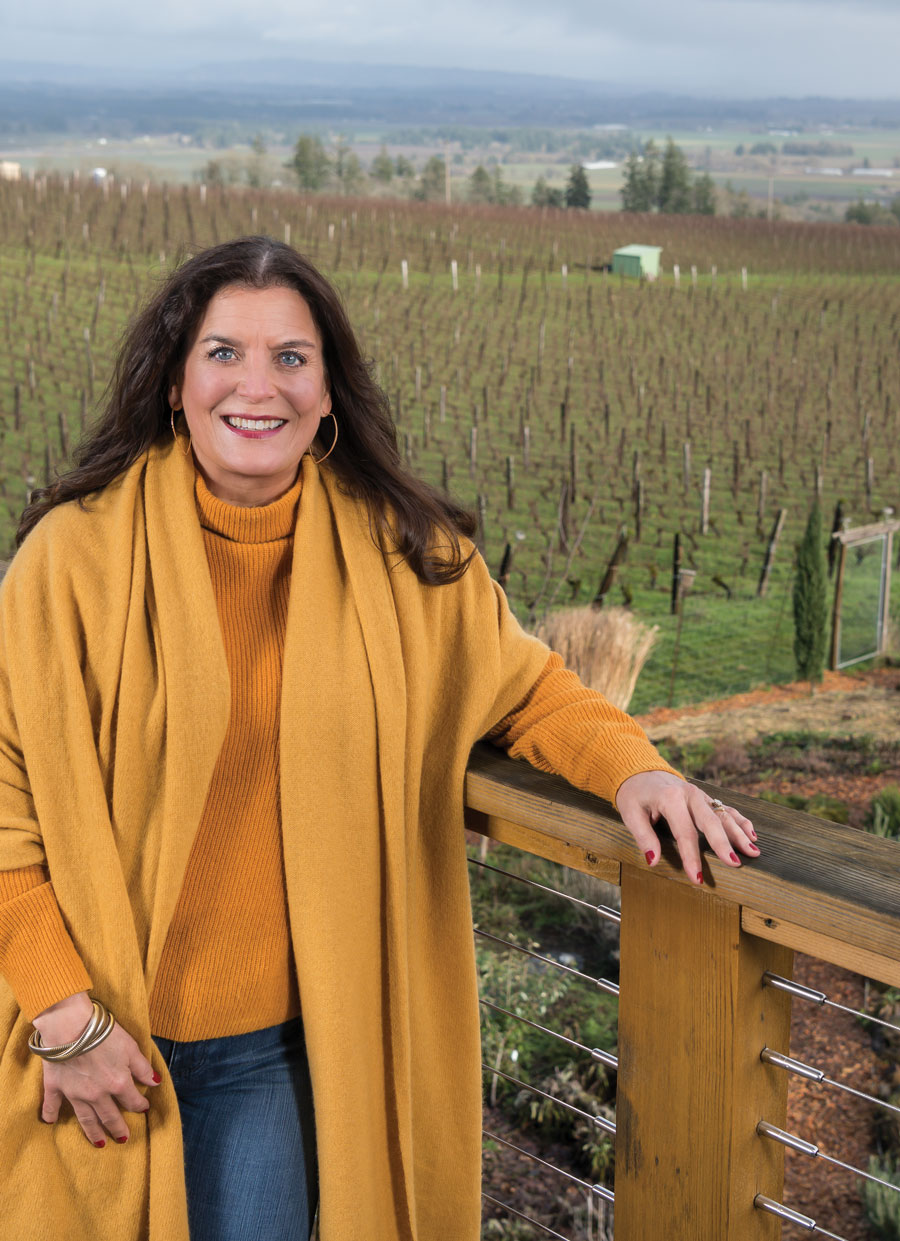
 Learn more about the story of Brooks Winery, as well as the early Willamette Valley, Oregon, wine scene:
Learn more about the story of Brooks Winery, as well as the early Willamette Valley, Oregon, wine scene:wpcareymagazine.com/wine
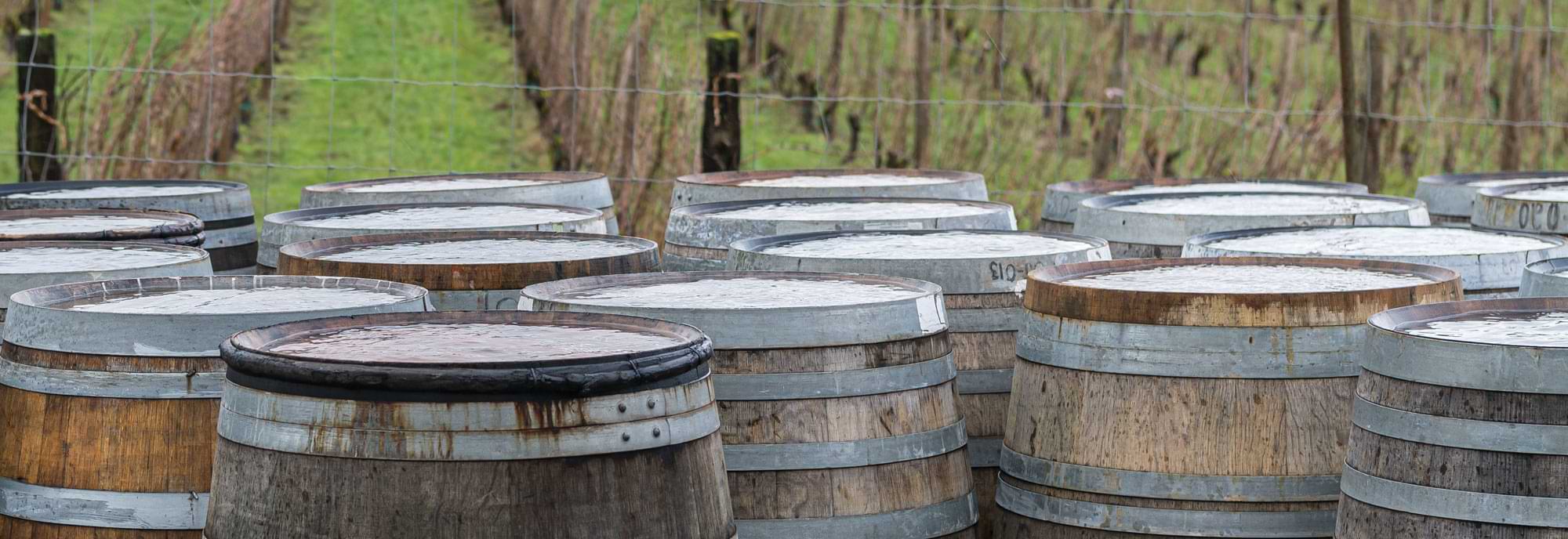
Many of these are conducted by Heuck herself, who is now a certified sommelier. Earning the designation requires studying the wines of the world — not just by memorizing a lot of information but also by being able to taste and differentiate between all the wines you’ve learned about. “The hardest part is that Oregon is just one page out of about 200 pages of wines,” she says.
Heuck puts that wisdom to work when she visits with people in the tasting room, which has since reopened. “I love that part of my job when someone is enjoying our product,” she says. “That’s the real core of the business.”
A winner in business and beyond
In addition to being named an ASU Top 100, Brooks Winery was recently named one of the Top 100 wineries in the world by Wine & Spirits magazine.
Located in Amity, Oregon, about 20 minutes north of Salem, the Brooks Winery grows about 20% of the fruit it requires, while 40% more comes from other area vineyards. In 2020, the area was engulfed in smoke from wildfires in the western United States. The smoke taint on grapes can compromise wines, so the winery decided not to make wine that year. But to supplement the lost income to its grape-growing partners, Brooks made payments to them anyway.
“It’s part of taking care of our relationships,” says Heuck. This generosity also helps ensure growers are in business to provide the grapes Brooks Winery would need in the future.
“Winemaking is very personal,” Heuck points out. “Most wines are unique. So it’s not as competitive as other businesses, because we’re all creating something different.”
This is certainly true of Heuck and Brooks Winery.